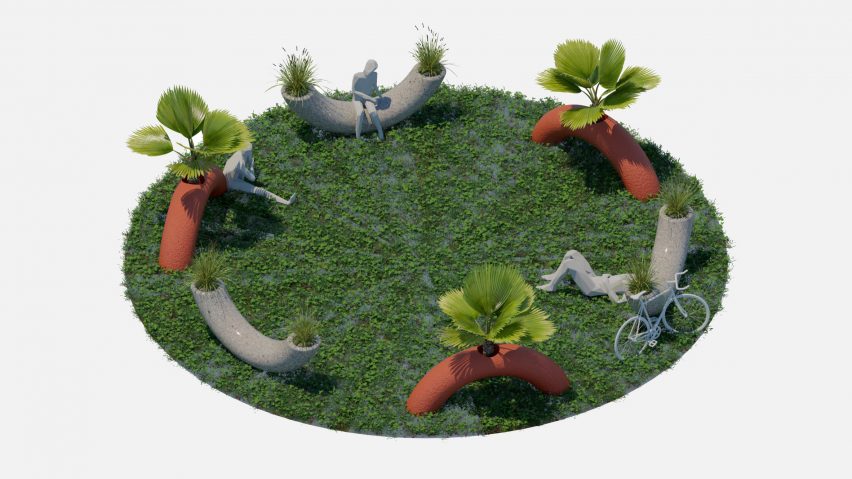
Nomo Fomo benches are social distancing devices to help prevent FOMO
Studio Hai has imagined a set of quirky outdoor benches and planters to help counteract the fear of missing out, or FOMO, during the coronavirus pandemic.
Nomo Fomo, an acronym of No More Fear of Missing Out, is a collection of curved barriers with protruding plants that could be used as interactive social distancing devices.
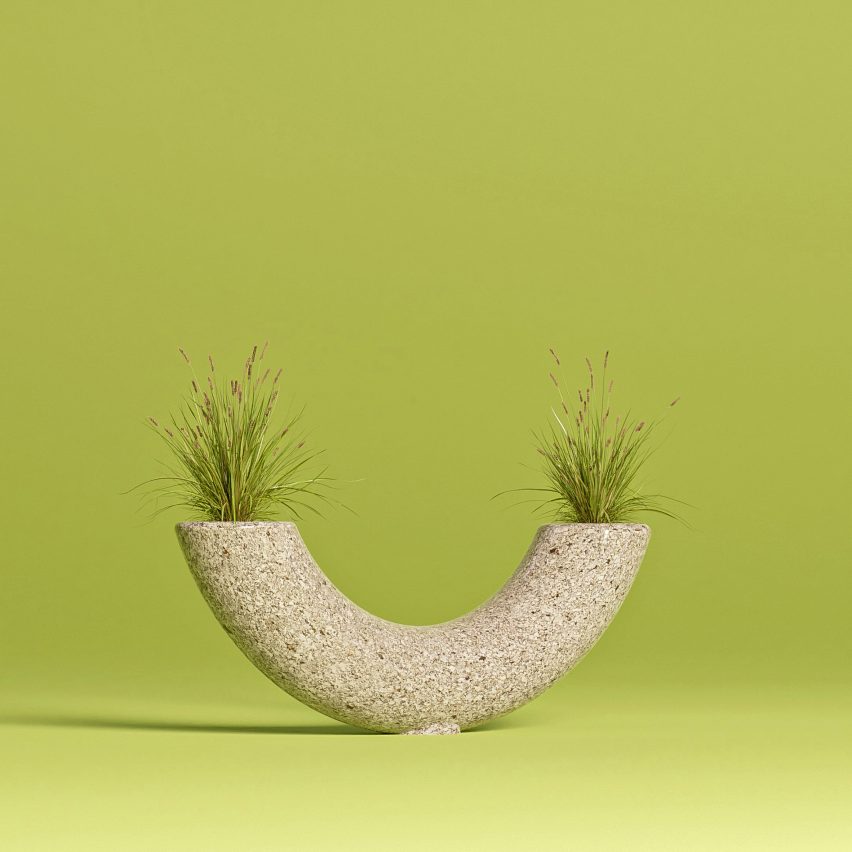
"Each object can be interpreted in multiple ways," said Studio Hai founder Andrew Furmanski.
"Either as a sculpture, planter, or an interactive object that is suitable for sitting on, standing on, leaning against or playing around."
Coloured either warm orangey-red or brownish stone, the objects resemble a frown or a smile depending on which way up they are placed.
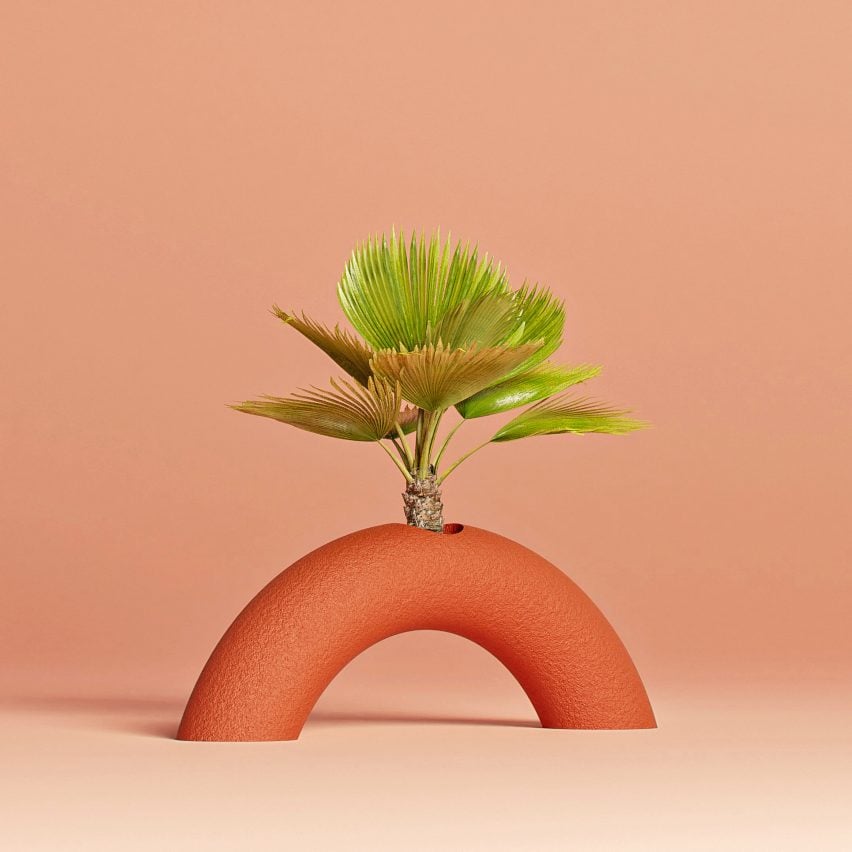
These smiles and frowns reference the idea of banishing FOMO during a time when people's interactions are limited due to the coronavirus pandemic.
"The smiles and frowns are a tongue-in-cheek way of saying, don't stay indoors and frown. Instead, go outside and connect with nature and each other in a safe and refreshing way," the designer told Dezeen.
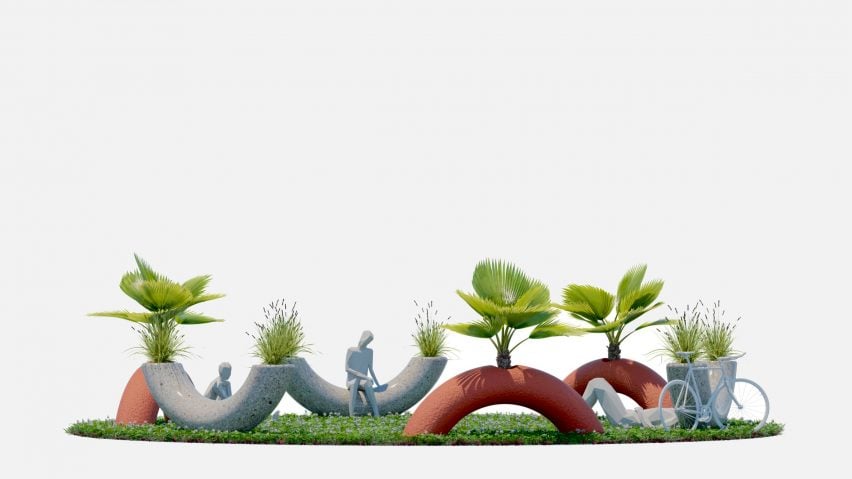
Studio Hai would realise them using aluminium frames covered in hard-coated expanded polystyrene, a lightweight and affordable yet extremely durable material.
If the project was installed in a public area, each object will be positioned 6 feet (2 metres) away from its counterparts.
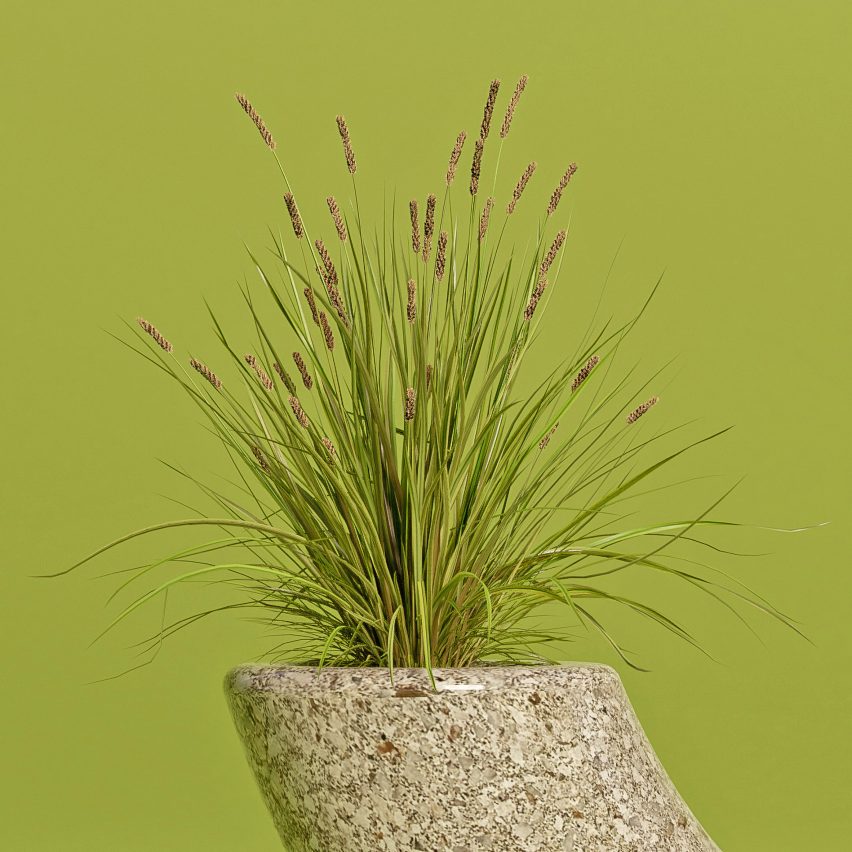
The project was shortlisted for the Atlanta BeltLine 2020 Public Art Programme in Georgia. The competition invited designs for installations along the Atlanta BeltLine, a former railway corridor that loops around the city and has been developed into scenic trails.
"Our proposal was to give people a space along the Atlanta BeltLine to gather, relax, or rest safely outdoors," said Furmanski.
After consulting Trees Atlanta, the studio chose the plant species commonly known as Saw Palmetto and Little Blue Stem for the project. The plants were chosen for their robust nature and suitability for Atlanta's humid subtropical climate.
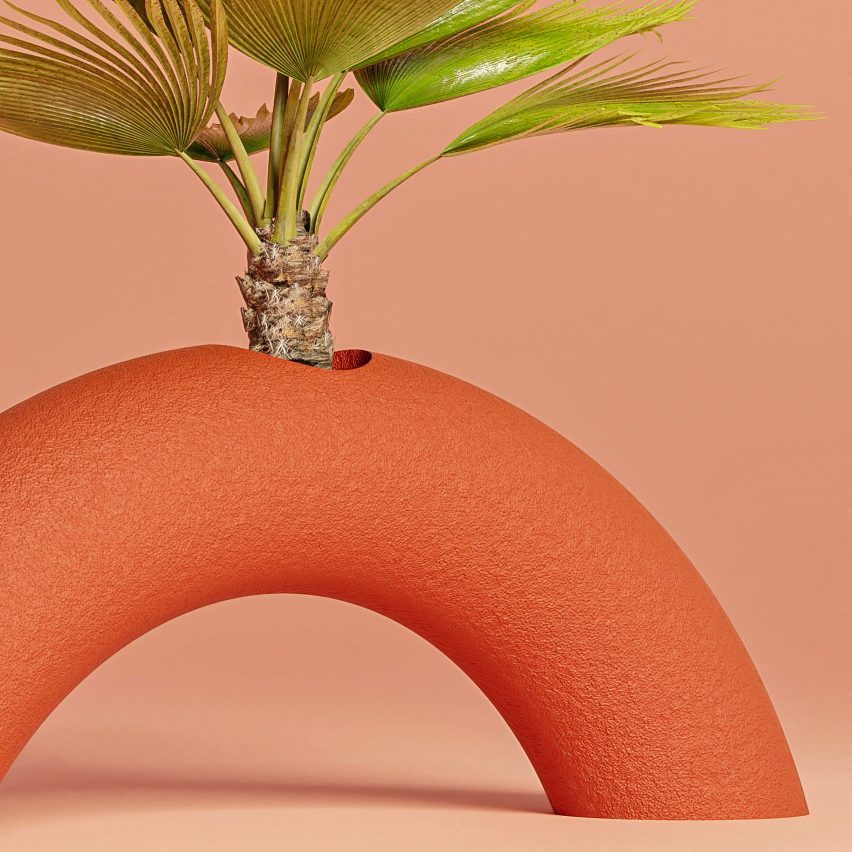
"Public artworks and installations can often feel alien to a site," said Furmanski. "I think that by adding plants to the works, we create an unexpected combination of elements that is, although surprising, wholly comfortable set within the BeltLine atmosphere."
While the installation has not currently been realised, Studio Hai remains hopeful that this project or a similar one will soon come to life.
"We still have major FOMO!" quipped Furmanski.
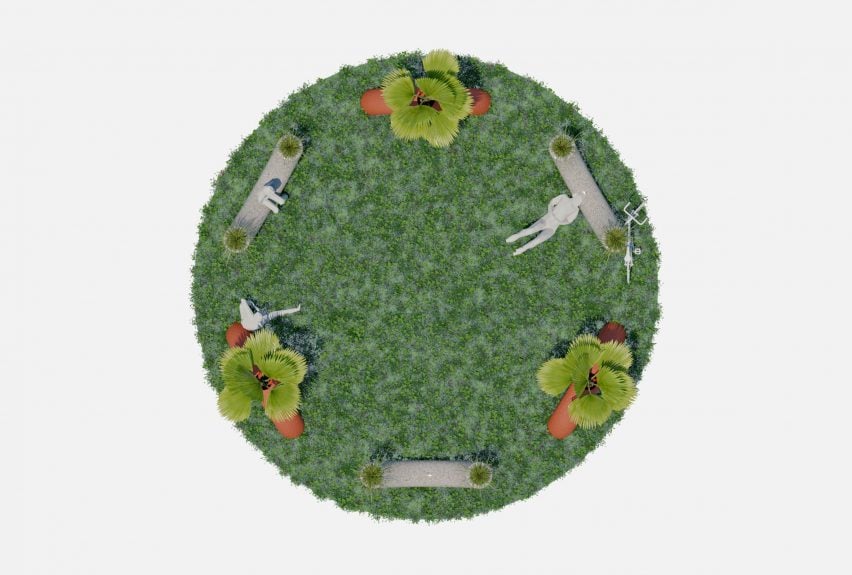
Founded by Andrew Furmanski in 2020, Studio Hai is an art and design practice with an emphasis on incorporating nature into the built environment, based between New York, Georgia and Shanghai.
Other public designs which have been developed as a result of coronavirus include an inflatable installation by Ekene Ijeoma in Brooklyn created to encourage people to breathe deeply, and a Columbian pop-up church by Colab-19, an architecture firm set up in response to the pandemic.
Renderings are courtesy of Studio Hai.